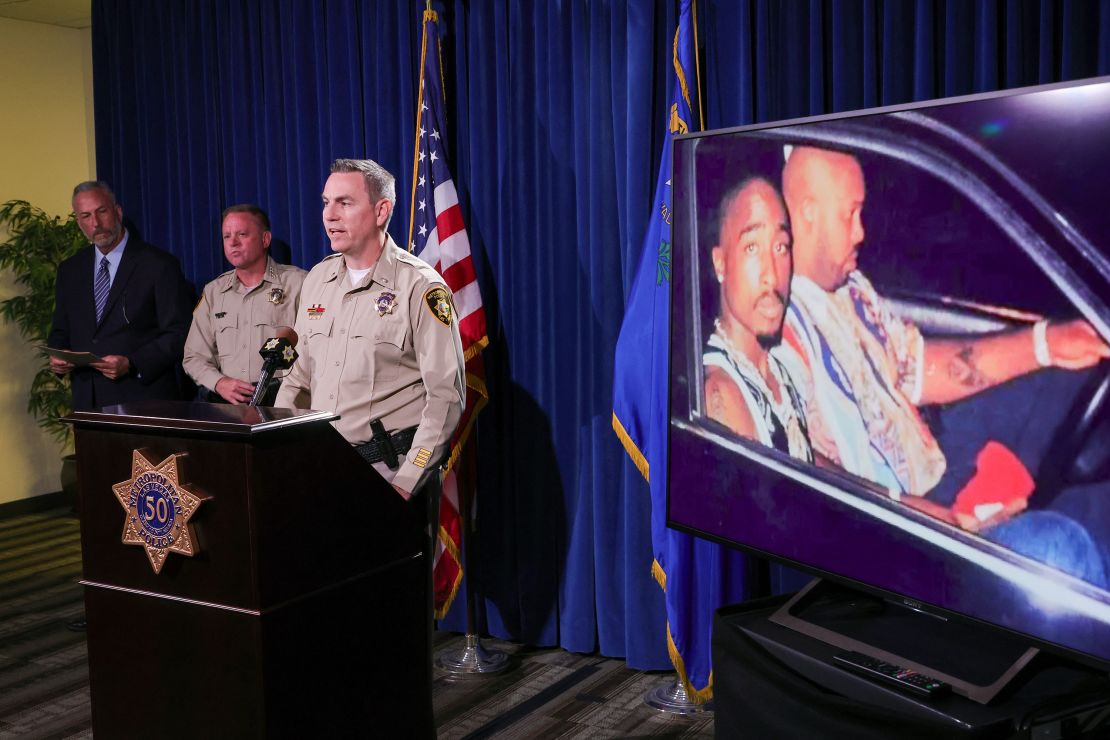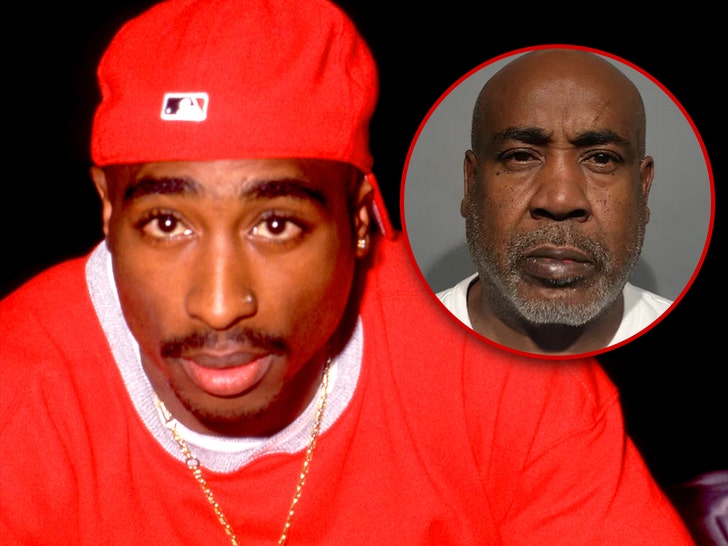The 60-year-old man charged with the killing of rapper Tupac Shakur pleaded not guilty in Las Vegas court Thursday.
Duane Keith Davis, known as “Keffe D,” arrived in court Thursday for his third scheduled arraignment on a charge of murder with use of a deadly weapon in a gang-related homicide.
Davis is accused of orchestrating the September 7, 1996 shooting that killed Shakur, the 25-year-old trailblazer whose brief, prolific career cemented his legacy as one of the most influential hip-hop artists of all time. His untimely death added a grim layer to that mystique, and for years it had been the subject of conspiracy theories.

After Davis told Judge Tierra Jones he was not able to retain local counsel, Jones said the court would appoint an attorney to represent him. This was Davis’ third scheduled arraignment. The previous two were delayed at Davis’ request, so he could look for an attorney.
Las Vegas attorney Ross Goodman was expected to represent Davis and even appeared with him in court two weeks ago before officially taking the case. However, Goodman is no longer on the case, stating in an email Wednesday that Davis was not able to meet the terms of the agreement.
After court on Thursday, Goodman told CNN, “I support Mr. Davis and I hope to get back on the case. There are people trying to get the finances together to get me on the case.”
The prosecution on Thursday said the state does not plan to seek the death penalty against Davis.
Davis was arrested on September 29 and has been held without bail since. He waived his right to a trial in 60 days, and the next status check on his case is set for November 7.
Shakur’s slaying was the subject of a decadeslong investigation by police that culminated last month with Davis’ arrest following his indictment by a grand jury. He is the only suspect in the case still alive, police said.

Investigation was ‘reinvigorated’ in 2018
For years, Davis has placed himself at the scene of the crime, stating publicly he was in the front seat of a white Cadillac when it pulled up alongside Shakur’s car and shots were fired from the back seat. Shakur was shot four times and died six days later.
Authorities have cast Davis as the ringmaster of the plot to kill Shakur, which they contend was retaliation for an attack on Davis’ nephew, Orlando Anderson, that stemmed from a broader conflict between two gangs in Compton, California.
Shakur and Marion “Suge” Knight, then-CEO of Death Row Records, were affiliated with the Mob Piru gang, said Jason Johansson, the homicide lieutenant of the Las Vegas Metropolitan Police Department. Davis and Anderson were affiliated with the Southside Compton Crips, Johansson said.
At the time of the fatal shooting, Shakur was in Las Vegas to see Mike Tyson box at the MGM Grand Hotel, an event that also was attended by Davis and his nephew. While leaving the fight, members of Death Row Records kicked and punched Anderson near an elevator bank inside the MGM Grand, Johansson said, playing surveillance footage that showed Shakur and Knight among the participants.
Tupac Shakur attends “Cowboy Noir – Red Rock West” Party at Club USA in New York City on April 2, 1994. (Photo by Ron Galella, Ltd./Ron Galella Collection via Getty Images)
Suspect arrested in 1996 Tupac Shakur shooting death
Afterward, Davis “began to devise a plan to obtain a firearm and retaliate against Suge Knight and Mr. Shakur,” Johansson said. Davis got a gun, then got into the white Cadillac with Anderson, Terrence Brown and Deandre Smith, the lieutenant said.

Anderson and Smith were in the back seat, according to a copy of the indictment. And at some point, Davis provided the gun to the back-seat passengers, Johansson said.
Then, someone pulled the trigger – though the indictment doesn’t say who. Either way, Davis “was the shot-caller for this group of individuals that committed this crime,” Johansson said. “He orchestrated the plan that was carried out to commit this crime.”
Anderson denied involvement to CNN before his death in a 1998 gang-related shooting.
Davis confessed to his role in the crime in 2009, but authorities couldn’t bring charges because of a proffer agreement – in which a suspect agrees to provide potentially useful information in an investigation that generally cannot be used as evidence against the suspect – a former detective on the case, Greg Kading, told CNN.
The investigation was “reinvigorated” in 2018, Johansson said, in part thanks to “Davis’ own admissions to his involvement.” Authorities felt it was their last opportunity to solve the case and bring charges, he said.
Police in July searched the Henderson, Nevada, home of Davis’ wife, looking for writings or documents related to Shakur’s killing, according to an affidavit requesting a search warrant. They seized a copy of Davis’ memoir, in which he wrote about street gang life and the shooting of Shakur, describing himself and Knight – in prison on a manslaughter charge in an unrelated case – as the only two living witnesses to the shooting.





